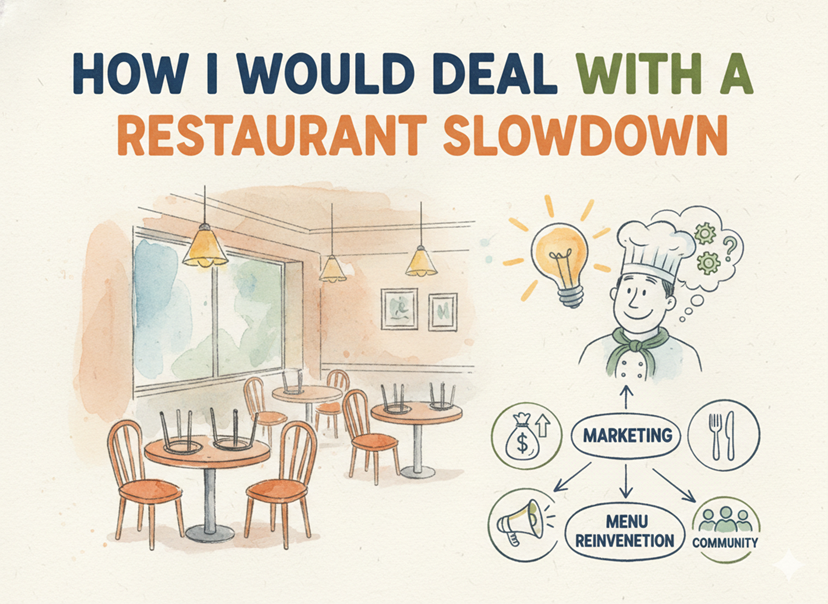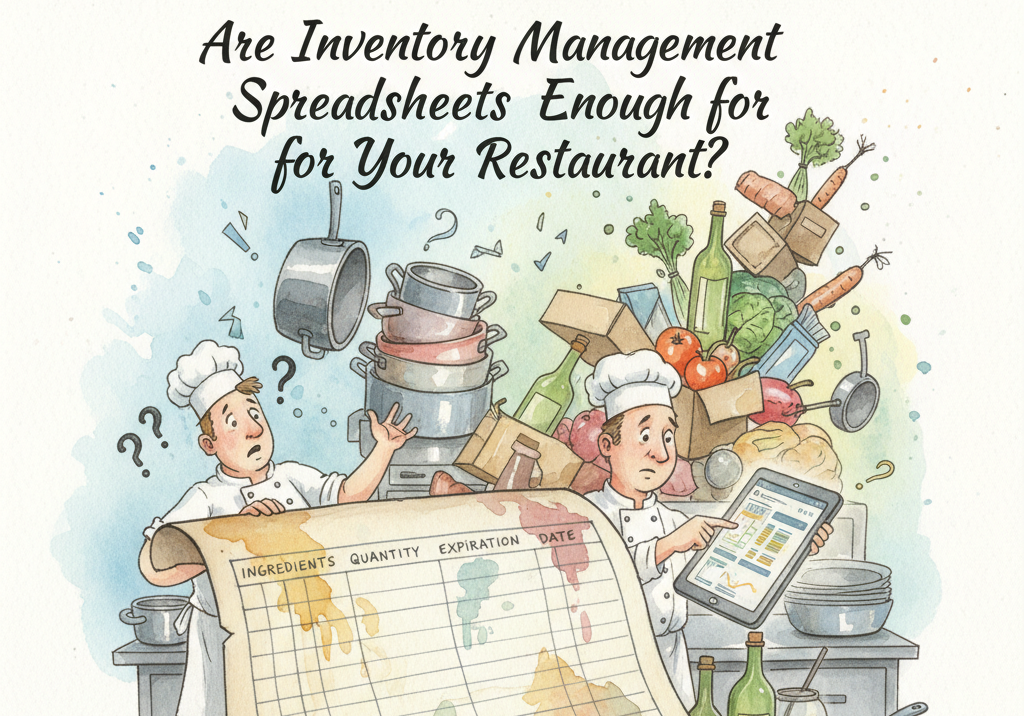Running a restaurant is not just about good food and excellent service. It also requires keeping everything in top condition. This is where restaurant maintenance comes into play. A well-maintained restaurant is safe, efficient, and welcoming to customers. In this guide, we will explore what restaurant maintenance means, the tasks it involves, and how you can prepare for it.
What Is Restaurant Maintenance?
Restaurant maintenance is the process of keeping all aspects of your establishment—from equipment to facilities—in proper working order. This includes regular inspections, cleaning, repairs, and upgrades. A well-maintained restaurant ensures that customers have a comfortable experience, staff can work efficiently, and safety standards are met. In Malaysia, where the food and beverage industry contributed RM99 billion in gross output in 2022 (source: DOSM), maintaining high standards is essential to remain competitive.
What Happens in Restaurant Maintenance?
1. Kitchen Equipment Maintenance
The kitchen is the core of your restaurant. All your cooking equipment, such as stoves, ovens, grills, refrigerators, and dishwashers, needs regular maintenance. Without proper care, these appliances can break down, leading to costly repairs and disruptions.
For example, cleaning and checking grease traps prevent blockages and foul odors. Refrigeration units must be inspected to ensure they maintain safe food storage temperatures. Neglecting this could lead to food spoilage, health code violations, and loss of trust from customers.
2. Facility Maintenance
Facility maintenance includes keeping your building and infrastructure in good shape. This involves inspecting plumbing, electrical systems, lighting, and HVAC (heating, ventilation, and air conditioning) units. In Malaysia’s humid climate, a functioning air conditioning system is vital for customer comfort.
Additionally, ensuring restrooms are clean and well-maintained is crucial. Broken fixtures or unclean facilities can leave a bad impression on diners.
3. Cleanliness and Hygiene
Cleanliness is non-negotiable. Regular deep cleaning of the kitchen, dining area, and storage spaces is essential. Malaysian health regulations require restaurants to maintain strict hygiene standards. Failure to do so can result in fines, temporary closures, or worse—a tarnished reputation.
4. Safety Inspections
Safety is another critical aspect of restaurant maintenance. Fire safety systems, such as extinguishers and smoke alarms, should be checked regularly. Slippery floors, faulty electrical wiring, or broken furniture can pose risks to both customers and staff. Regular safety checks help prevent accidents and legal liabilities.
How to Prepare for Restaurant Maintenance
Preparing for maintenance doesn’t have to be stressful. Here are practical steps you can take:
1. Schedule Regular Inspections
Create a maintenance schedule that covers daily, weekly, monthly, and annual tasks. For example:
- Daily: Clean cooking surfaces and floors.
- Weekly: Check refrigeration and freezer temperatures.
- Monthly: Inspect HVAC systems and plumbing.
- Annually: Service all major equipment and update safety systems.
A routine schedule minimizes the chances of unexpected breakdowns. It also helps you stay compliant with health and safety regulations.
2. Train Your Staff
Your team plays a big role in keeping your restaurant well-maintained. Train them to identify and report potential issues. For example, a dishwasher noticing a leaking pipe or a cook hearing strange noises from the oven can help address problems early.
Encourage cleanliness among staff, from proper dishwashing techniques to organizing storage areas. When everyone works together, maintenance becomes easier.
3. Budget for Maintenance
Allocate a portion of your budget specifically for maintenance. This will cover repairs, professional services, and the replacement of worn-out equipment. While it might feel like an added expense, it’s a smart investment. Regular maintenance reduces the risk of expensive emergency repairs and ensures everything runs efficiently.
4. Work With Professionals
Not all maintenance tasks can be handled in-house. For complex jobs, such as repairing refrigeration units or servicing HVAC systems, hire certified professionals. They have the expertise to identify issues you might miss.
For instance, some restaurant chains in Malaysia rely on external maintenance services to keep their equipment in top shape. Outsourcing these tasks ensures they’re done correctly and safely.
5. Prepare Contingency Plans
Sometimes maintenance work requires shutting down parts of your restaurant. Plan for such situations. For example, if your kitchen’s exhaust system needs repairs, schedule it during off-peak hours or on days when the restaurant is closed. Inform your staff and customers in advance to manage expectations.
Benefits of Effective Restaurant Maintenance
Investing time and effort in maintenance pays off in many ways:
- Improved Customer Experience: A clean and functional restaurant creates a positive impression. Customers are more likely to return and recommend your establishment.
- Operational Efficiency: Well-maintained equipment works efficiently, saving energy and reducing utility costs.
- Compliance with Regulations: Meeting Malaysian health and safety standards protects your business from fines and penalties.
- Extended Equipment Lifespan: Regular maintenance prevents wear and tear, reducing the need for replacements.
- Staff Satisfaction: A safe and clean work environment boosts morale and productivity.
Frequently Asked Questions (FAQs)
1. What are the preparations to be done before maintenance work?
Before maintenance begins, inform your staff about the schedule. If the work affects customers, such as closing certain areas or turning off equipment, notify them in advance. Remove any items that might obstruct maintenance tasks. For example, clear out refrigerators before servicing them.
2. How often should kitchen equipment maintenance be performed?
It depends on the type of equipment and usage. For high-use appliances, like stoves and grills, daily cleaning and weekly inspections are recommended. Refrigerators and freezers should be checked monthly, while deep cleaning and servicing can be done quarterly.
3. Can regular maintenance reduce costs?
Yes. Regular maintenance prevents small issues from turning into major problems. For example, cleaning grease traps reduces the risk of expensive plumbing repairs. Efficient equipment also uses less energy, lowering utility bills.
4. Is professional maintenance necessary?
While some tasks can be handled in-house, professional services are essential for complex jobs. Certified technicians have the skills and tools to ensure everything is in optimal condition.
5. How does maintenance affect customer perception?
A well-maintained restaurant reflects your commitment to quality. Customers notice details like clean restrooms, working air conditioning, and polished floors. Positive impressions lead to repeat business and good reviews.
Restaurant maintenance might seem overwhelming, but it’s a vital part of running a successful business. By staying proactive and organized, you can ensure your restaurant remains safe, efficient, and inviting. In Malaysia’s dynamic food scene, where competition is fierce, regular maintenance gives you an edge. Keep your establishment in excellent shape, and your customers will keep coming back.




